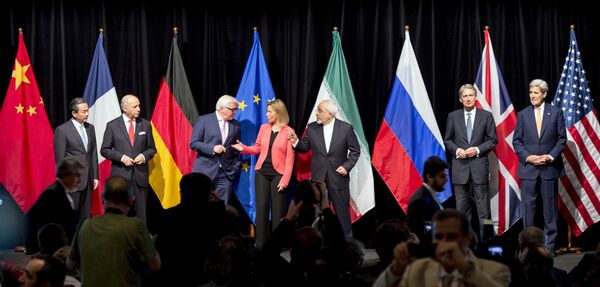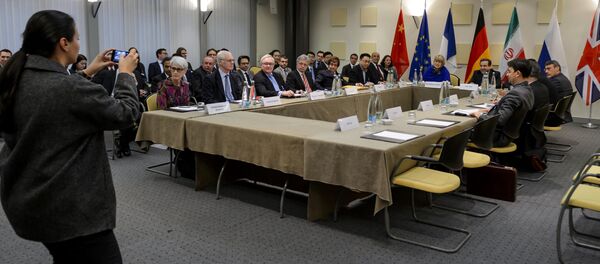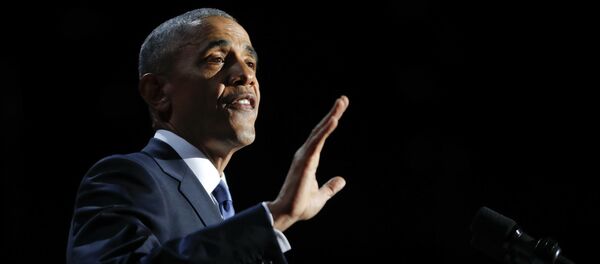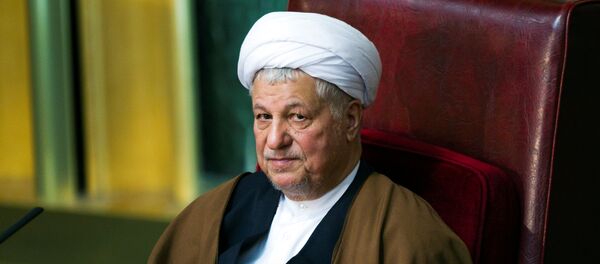Obama signed extensions of seven different sanctions programs targeting six countries and non-state actors on Friday, including Iran, Russia, Cuba, Libya, Venezuela and Zimbabwe.
Obama explained his decision to keep sanctions in place in a letter to Congressional leaders, saying that in spite of the fact that Tehran has met its commitments under the 2015 Iran nuclear agreement, "irrespective of [that deal]…certain actions and policies of the government of Iran continue to pose an unusual and extraordinary threat to the national security, foreign policy, and economy of the United States."
The landmark Iran nuclear deal, known as the Joint Comprehensive Plan of Action (JCPOA), was adopted in July 2015 following negotiations involving Iran, the US, Russia, China, France, the UK and Germany. The agreement promised Tehran sanctions relief in exchange for commitments not to pursue nuclear weapons technology.

In December, US lawmakers voted to extend anti-Iranian sanctions, leading to complaints from Tehran that Washington was violating its obligations under the nuclear deal. In early December, Iranian President Hassan Rouhani urged Obama to block the extension of the sanctions. "If this law is implemented, it will be a blatant violation of the Iran deal and will lead to our resolute response," he said.
In response to the US lawmakers' efforts, Iran's parliament called on Rouhani's government to take 'reciprocal action' against the US. Foreign Minister Javad Zarif warned that Iran may suspend implementation of the deal, and Tehran informed the UN that it considered the US to have violated the agreement.
Since then, President Rouhani has ordered Iranian nuclear scientists to begin work on developing nuclear-powered ships for Iran's Navy. Last week, Iranian lawmakers approved a more than two-fold increase in the country's military budget, including additional spending on conventionally-armed long-range missiles.
With the Iran deal threatened, possibly the sole major achievement of President Obama's international peace efforts faces the prospect of collapse, particularly as the new administration prepares to take office. On the campaign trail, President-elect Trump repeatedly slammed the Iran nuclear agreement, calling it a "terrible deal" and "the worst deal ever negotiated." At the same time, the Republican-controlled Congress would be likely to support Trump if he were to make the decision, given that they tried to block it after it was signed back in 2015.
However, international relations expert Rajan Menon says that Trump tearing up the deal should not be seen as a foregone conclusion. "After all," he wrote, Trump has "also said that he'd consider renegotiating its terms to ensure that it meets his (unspecified) standards."
For instance, the academic recalled, in 2015, Trump told the panel at MSNBC's Morning Joe that while the Iran deal was "a horrible contract," he wasn't firmly committed to tearing it up as president. "I'd love to tell you I'm going to rip up this contract; I'm going to be the toughest guy in the world. But you know what? Life doesn't work that way."
Furthermore, "even if [Trump abandoned the deal], Europe, China and Russia wouldn't follow suit, which would mean that their companies, not American ones, would reap the benefits of doing business with Iran," Menon noted. US companies like Boeing, which signed a $17 billion deal with Tehran last month, would be forced to "forfeit such opportunities."
"Would Trump, who presents himself as the ultimate dealmaker and vows to create millions of jobs in the United States, really like to take credit for that?" the academic asked. Ultimately, he said, while it was almost certain that relations between Washington and Tehran would get considerably worse under Trump, the nuclear deal is not necessarily the thing to focus on.





